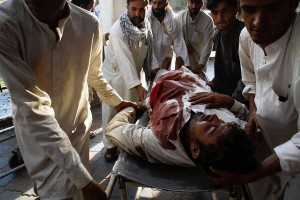Latest News
IISS findings indicate sharp increase in civilian causalities in 2015
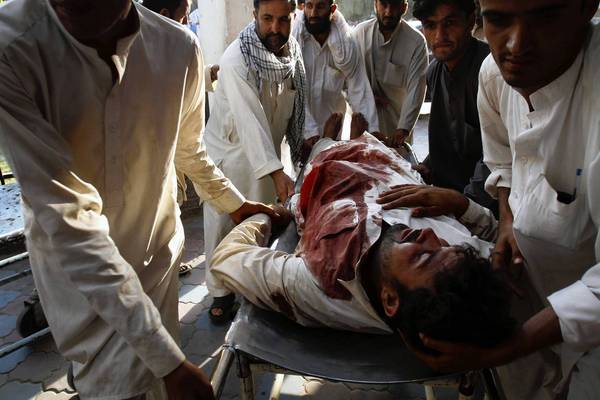
The International Institute for Strategic Studies (IISS) findings shows a sharp rise in civilian causalities in 2015 which is a two-fold increase over the year 2014.
IISS in its recent report has written that the number of Afghan civilians killed and wounded passed 15,000 in 2015 – the highest number recorded since the United States-led invasion more than 14 years ago and the deadliest year for the Afghan people.
The government consider the main factor of causalities rise is the armed Taliban group; emphasizing that civilians have no value for this group.
“The enemies make the civilians their shields in everywhere and they have no mercy to civilians with their bloody attacks,” Dawa Khan Mina Pal, President’s deputy spokesman said.
Ariananews tried to have the comments of Human Rights Commission regarding the issue but failed to succeed.
Meanwhile, a number of civil activists consider the number of civilian causalities in 2015 terrible.
“We call on the involved parties to left civilians alone. The presented statistic is terrible,” Aziz Rafie, chairman of civil society association said.
Fighting between the parties to the conflict that could not be attributed to one specific party caused 10 per cent of civilian casualties while unattributed explosive remnants of war caused the remaining four per cent.
The 2015 Midyear Report on Protection of Civilians in Armed Conflict, prepared by the UN Assistance Mission in Afghanistan (UNAMA) and the UN Human Rights Office, documented 4,921 civilian casualties (1,592 deaths and 3,329 injured) in the first half of 2015, a two per cent increase in total civilian casualties compared to the same period in 2014.
Anti-Government Elements continued to cause the most harm despite a slight reduction in total civilian casualties.
Civilian deaths and injuries caused by Pro-Government Forces caused 16 per cent of civilian casualties (15 per cent from Afghan National Security Forces and Pro-Government Militia and one per cent from International Military Forces).
By an estimated 59,000 civilian casualties have been recorded since the UN began tracking the total in 2009.

Latest News
Southern Afghanistan records one of wettest Aprils in 40 years
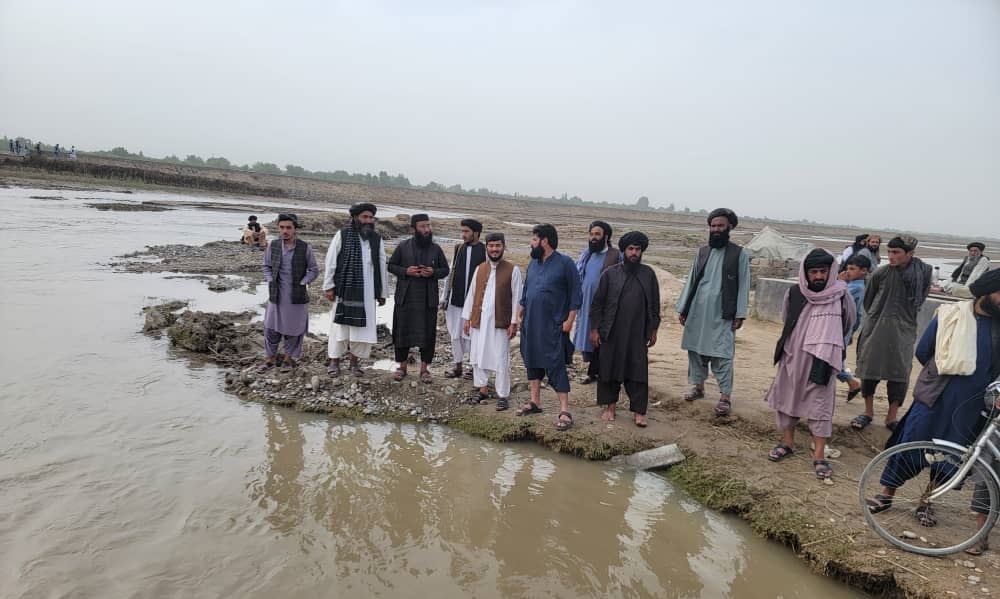
Southern Afghanistan recorded one of its top three wettest Aprils in the last 40 years, a specialist U.S.-based agency said on Monday.
In general, the precipitation in April has supported standing crops in northern, northeastern, and western parts of the country, but flooding has affected around 10,000 acres of agricultural land, particularly in eastern and southeastern parts of the country, the Famine Early Warning Systems Network (FEWS NET) said in a report.
The recent precipitation has also positively contributed to pasture conditions across the country, except in the central highlands, where temperatures are still typically low, according to the report.
As the precipitation season concludes, household access to food and income is expected to improve with the start of the harvest and agricultural labor opportunities, the report said.
Latest News
Iranian official: Only vulnerable points of Afghanistan’s border will be walled and fenced
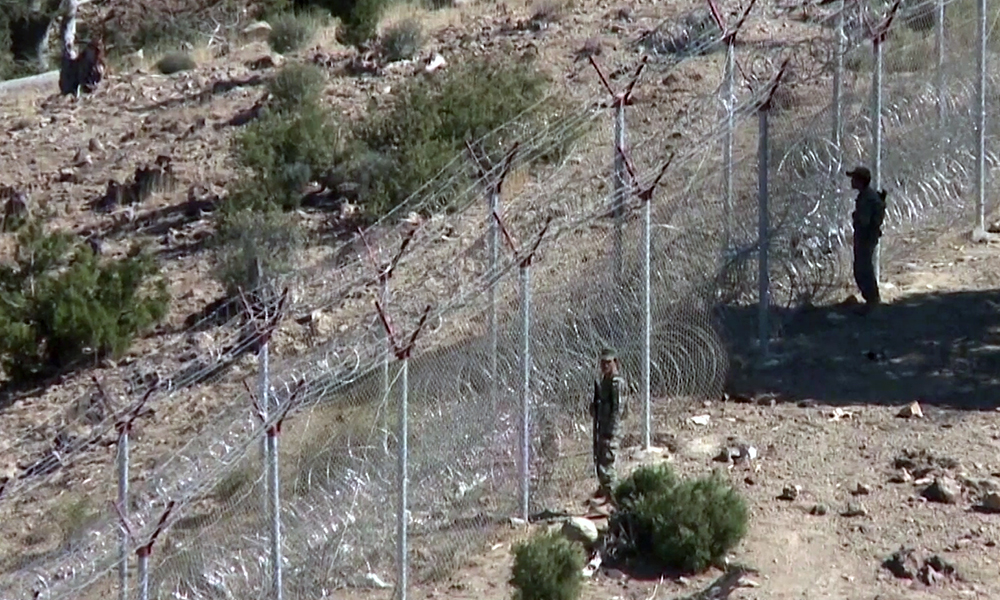
An Iranian security official has said that the entire border of Iran with Afghanistan will not be fenced, rather barriers will be created only at vulnerable points.
Iranian army has announced that the plan to create barriers at the border with a four-meter concrete wall, barbed wire and fence will be implemented within three years.
“In some northwestern and eastern borders, there are threats from the other side of the borders that we are countering,” said Qassem Rezaei, Iran’s deputy police commander.
He added that drug trafficking, human trafficking, and even terrorist infiltration may take place through these borders.
Meanwhile, the Minister of Interior of Iran Ahmad Vahidi has announced that over 1.3 million illegal foreign nationals have returned to their country in the past year.
He added that illegal citizens should leave Iran as they are not allowed to stay.
Latest News
Hanafi meets WHO regional director, stresses need for cooperation
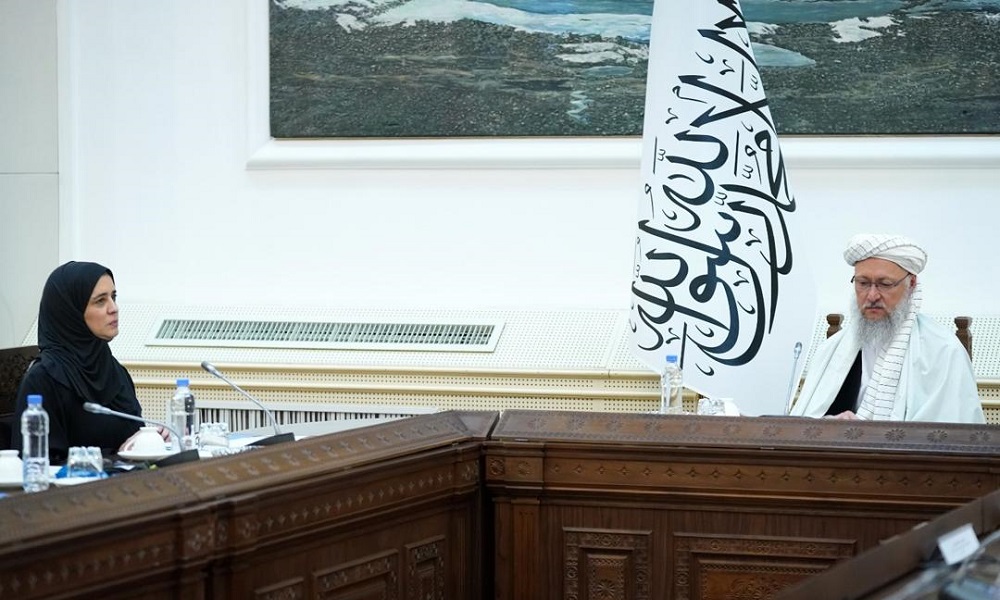
Deputy Prime Minister for Administrative Affairs Abdul Salam Hanafi on Sunday met with WHO Regional Director for the Eastern Mediterranean, Hanan Balkhy, and called for the organization’s cooperation including in the establishment of clinics in remote areas and training of specialists.
According to a statement released by his office, Hanafi pointed out that since the Islamic Emirate in Afghanistan regained power, there has been progress in various fields, including the fight against drug production and trafficking, the roundup and treatment of drug addicts, the eradication of corruption and nationwide security.
He asked the WHO to hand over Afghanistan’s seat to the representative of the Islamic Emirate and restore Afghanistan’s membership in meetings of the executive board and leadership meetings of the Mediterranean region.
Hanafi also called for the cooperation of international organizations in providing alternative livelihoods for poppy farmers and in providing assistance to flood victims.
While stressing that the eradication of polio is one of the priorities of the Islamic Emirate, Hanafi asked the WHO to activate polio diagnosis laboratories and supply vaccines, establish a cancer treatment center, prevent malnutrition among children and provide safe drinking water.
According to the statement, WHO official Balkhy said in the meeting that the health issue is non-political and one of the priorities of the organization.
She pointed to the achievements of the Islamic Emirate in various fields and expressed hope that better conditions will be provided for Afghans in the health and education sector.
Balkhy explained that WHO, together with other international organizations and the European Union, has a three-year project that includes the establishment of health centers in different provinces of Afghanistan.
She also expressed her appreciation for the efforts of the Islamic Emirate in the fight against polio and added that she will discuss the issue of providing alternative livelihoods for Afghan farmers with the WHO and other relevant organizations.
-

 Sport5 days ago
Sport5 days agoSorkh Poshan Khafi and Khadim FC winners in their ACL matches
-
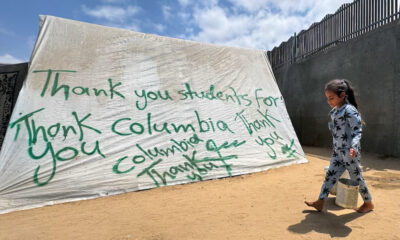
 World4 days ago
World4 days agoWhy Palestinians can count on American students but not Arab allies to protest
-

 Sport4 days ago
Sport4 days agoAbu Muslim and Attack Energy win in ACL matches
-

 Sport5 days ago
Sport5 days agoFour Afghans included in Refugee Olympic Team for Paris 2024
-

 World5 days ago
World5 days agoCalifornia police flatten pro-Palestinian camp at UCLA, arrest protesters
-

 Regional4 days ago
Regional4 days agoTurkey halts all trade with Israel, cites worsening Palestinian situation
-

 Latest News5 days ago
Latest News5 days agoFive dead, 24 injured in traffic accident in Samangan
-

 Science & Technology4 days ago
Science & Technology4 days agoChina launches historic mission to retrieve samples from far side of the moon

